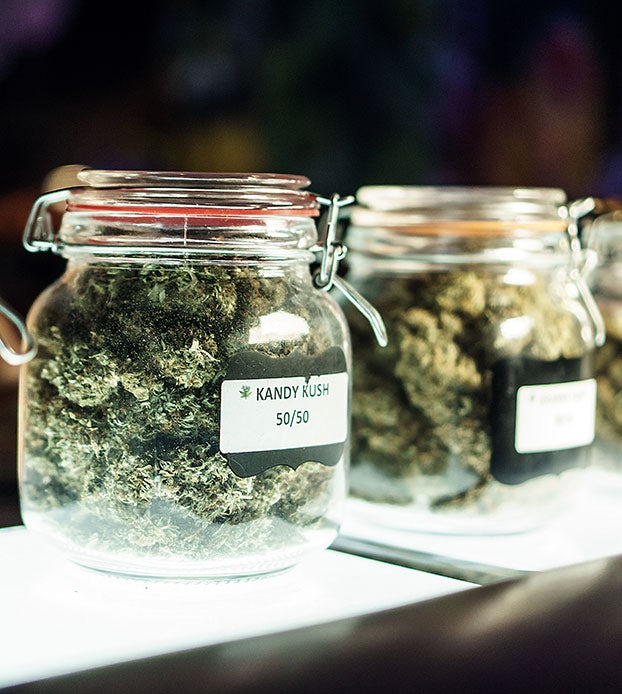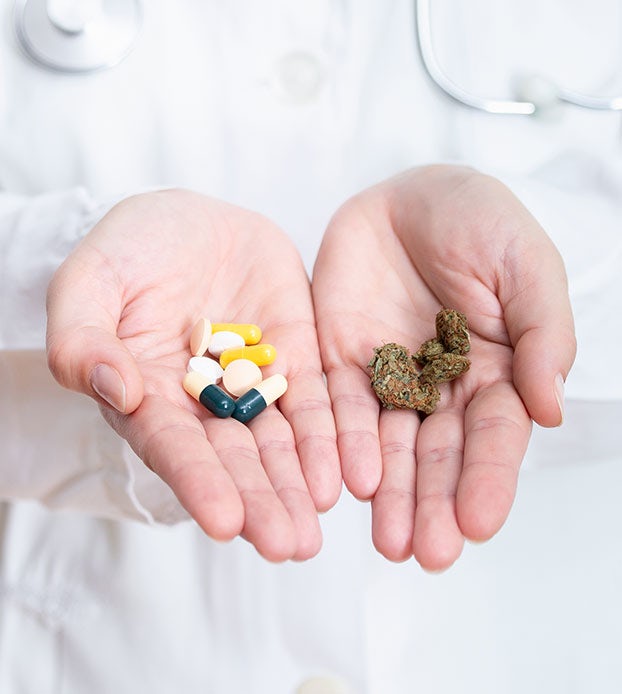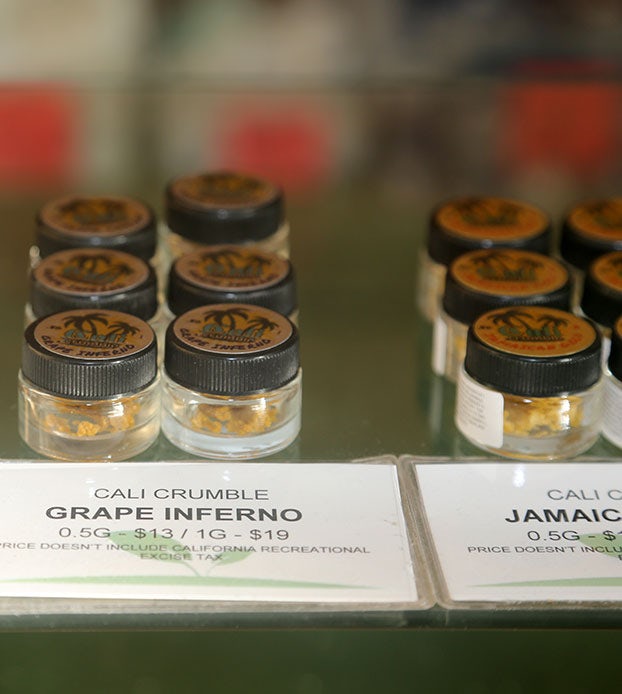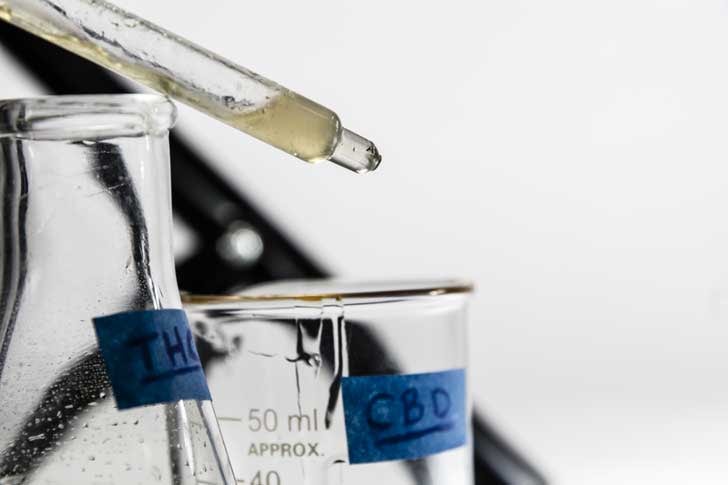ADHD has long been tied to increased cannabis use, as well as abuse of drugs like alcohol and nicotine. This has led many doctors to assume it is more harmful than helpful in treating ADHD. Still, many patients report that cannabis helps them to feel more in control of their symptoms, leading to important questions. Can cannabis help with ADHD? And if so, is it safe to combine cannabis with other ADHD medications?
What is ADHD?
Attention deficit hyperactivity disorder, or ADHD, is a condition characterized by behavioral symptoms such as inattentiveness, hyperactivity, impulsiveness. Usually diagnosed in children, ADHD affects around 5% of children and 3% of adults worldwide and can cause challenges for sufferers’ education, work, and home life. 1
Can cannabis help with ADHD?
While there has been little systematic research on using cannabis for ADHD, many patients with the condition report positive effects from using cannabis. ADHD sufferer Max Simon, for example, explains that cannabis “just kind of settles my system down to what I would imagine is more what normal people feel like on a day-to-day basis.”
Simon is not alone, one study reviewed online forum posts about cannabis and ADHD and found that 25% of posts indicated therapeutic benefits from this treatment – with statements like “While you are high … you will be able to focus much, much better than you normally would” and “(cannabis) helps me greatly with my ADHD.” Only 8% reported worsened symptoms. 2
Doctors have even published case reports of successfully treating severe ADHD symptoms with cannabis, claiming it reduced behavioral symptoms, eased emotional distress and even improved driving performance. 3 4
Researchers suggest these improved symptoms with cannabis could be because it is stimulating the endocannabinoid system (ECS). Studies have found that the ECS is deficient for ADHD patients, leading to dopamine and serotonin deficiencies that are associated with ADHD. 5
Still, many argue that cannabis use with ADHD can be detrimental pointing to studies that show worsened symptoms, and higher rates of cannabis use disorders. Some believe that the higher cannabis use is simply self-medication, pointing to studies that show improvement in symptoms. Still, no large systematic studies establish whether cannabis is more likely to help or hurt patients with ADHD. 6 7 8 9
How ADHD meds and cannabis combine

For those who do choose to use cannabis for ADHD, one big question is whether cannabis can be used in combination with other medications prescribed for ADHD. Prescription medications like Adderall (amphetamine and dextroamphetamine), Ritalin and Concerta (methylphenidate) are commonly taken by ADHD patients, but very little research has been done on drug interactions with cannabis.
One review of previous research found minimal research, but hypothesized if there were strong contraindications, we would likely see big problems popping up given the high rates of the combination. They concluded that there wasn’t enough evidence to justify withholding ADHD medication to patients who were using cannabis. But since the evidence can’t exclude a rare negative reaction, patients using both should be mindful that a reaction can happen, particularly if a large dose of either substance is used. 10
Other research looking at cannabis and ADHD medication in combination have found some benefits from using the combination. One small survey of 59 patients found that cannabis use was associated with a reduction in ADHD medication, reduced ADHD symptoms and reduced anxiety. 11
Another study of 11,232 ADHD patients found that those patients who also had a cannabis use disorder used less medication and behavioural therapy. Interestingly, it also found cannabis use disorder increased the risk of inpatient care and prolonged inpatient stays – which increased healthcare costs. It also found that adolescents that have ADHD and CUD are more likely to consume alcohol as well. 12
Does cannabis interact with all ADHD medications the same?
While the research above looked at cannabis and ADHD medications more generally, it is important to remember that all ADHD medications are not the same. For example, some like Adderall and Ritalin are stimulants, which can help with focus and alertness but unfortunately can also cause side effects like, insomnia, racing and pounding heart and anxiety – and in some cases lead to physical dependence and addiction.
While stimulants are most common for treating ADHD, those who don’t tolerate the side effects well can also try non-stimulant ADHD medications, which includes options that are much more like some blood pressure medications and antidepressants. There is even a non-stimulant specifically marketed for ADHD called Strattera. These options tend to have less agitating side effects and less potential for addiction. 13
Depending on your medication, you may have different reactions to using cannabis at the same time.
Concerta or Ritalin and cannabis
There hasn’t been much research on cannabis’ interaction with ADHD medications but there is one study looking at cannabis and methylphenidate (MPH) – the stimulant in ADHD medications Ritalin and Concerta. In this small, well designed double-blindstudy of 16 healthy adults (without ADHD), researchers observed the combination of THC (a psychoactive cannabinoid from cannabis) and MPH. The subjects enjoyed the combination of the Ritalin + weed, and the authors expressed concerns about impressionable youth consuming stimulants and cannabis together. This study was more focused on these drugs for abuse potential because they are commonly combined illicit drugs among college students. One study found that 52% of undergraduate illicit MPH users reported simultaneous use of marijuana. There was also an association between MPH and alcohol, and no surprisingly alcohol and cannabis as well. 14 15
The researchers did find some effects from the combination. THC increased ratings of how enjoyable the drug was to take. MPH alone decreased reaction times, but THC seemed to mediate that effect, bringing them back to normal. Unfortunately, the combination of the two also raised heart rates over each drug alone and thus increased cardiac stress.
The drug combination was well tolerated in most. Still there was only one adverse event – a period of extended rapid heart rate for one subject.
Still, while this data is important, because the subjects did not have ADHD, it is important to remember that we may see different results in that population.
Adderall and cannabis
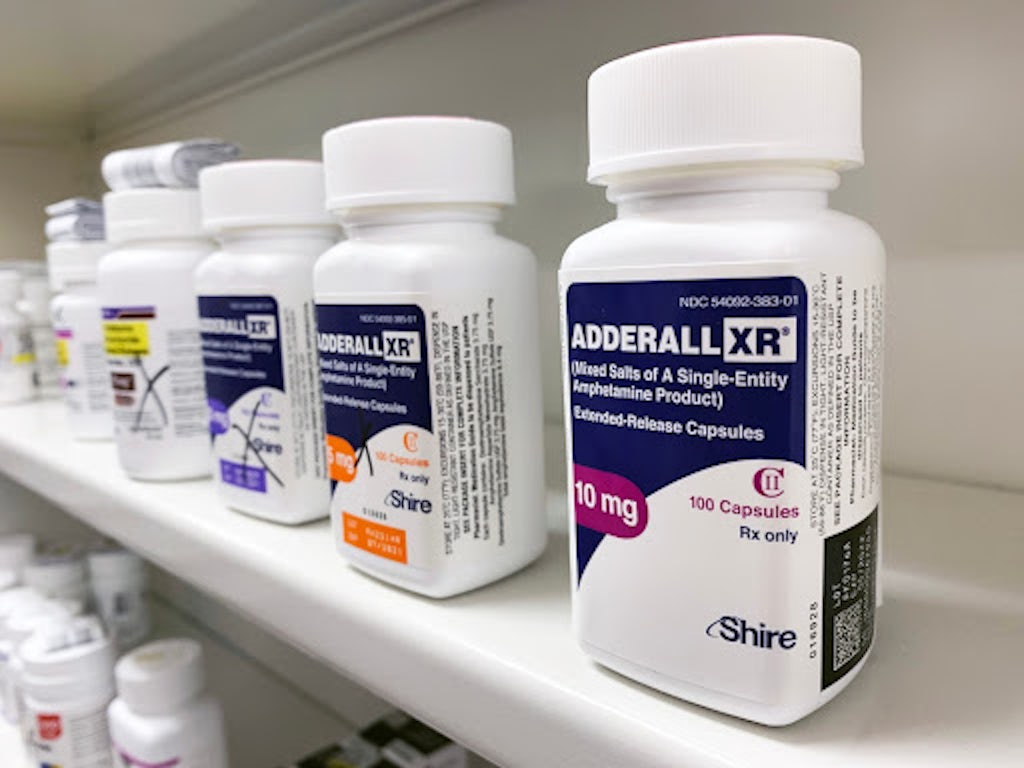
There is a small amount of research on amphetamine (an active ingredient in Adderall) and cannabis, but it focused on the impact of ADHD treatment on cannabis use when patients also had a cocaine use disorder. They found that adding Adderall treatment for patients with both ADHD and cocaine addiction reduced weekly cannabis use. 16
Unfortunately, this tells us very little about the safety and efficacy of combining these for those who wish to use them together.
Strattera and cannabis
There is also very little research on non-stimulant ADHD medication, atomoxetine (Strattera), and cannabis. One study looked at whether t atomoxetine could reduce the attention deficits from cannabis, the way it reduces them in ADHD patients. Again, this study was not on ADHD patients, but did look at the combination of the two medications. This study found that atomoxetine use reduced cannabis use, but it also found a high rate of an important potential side effect for the combination. 10 of 13 subjects using cannabis with atomoxetine experienced mild to moderate gastrointestinal problems like nausea, vomiting, and loose stools. 17
Other ADHD medications and cannabis
Other medications for ADHD, such as Vyvanse (lisdexamfetamine) and Focalin (dexmethylphenidate), have no research examining their interactions with cannabis. So it is important to exercise extra caution if you are currently using these options and considering cannabis, but in general you may be able to consider them to carry similar risks.
Perhaps the most important side effects of this combination would be cardiac stress from the stimulant combined with THC, which could result in a racing heart, changing blood pressures, or worsening heart problems. In addition, with the wrong dose of either stimulants or cannabis, anxiety can be a real problem. Remember to take deep breaths, get fresh air, and remember these tricks to help get you away from the edge of being too high.
With these, and all medications for ADHD, it is important to consult with a physician before adding cannabis to your regimen. Research shows side effects like increased cardiac stress, gastrointestinal problems and increased addictive responses are possible when combining cannabis and ADHD medications. Even if cannabis is a good treatment for ADHD, it is sure to be a medication where finding the right dose to suit your individual needs is important.
Sources
- David A Dawson, Clare P Persad. Targeting the Endocannabinoid System in the Treatment of ADHD. Genet Mol Med. 2021; 3(1): 1-7
- Mitchell JT, Sweitzer MM, Tunno AM, Kollins SH, McClernon FJ (2016) “I Use Weed for My ADHD”: A Qualitative Analysis of Online Forum Discussions on Cannabis Use and ADHD. PLoS ONE 11(5): e0156614. https://doi.org/10.1371/journal.pone.0156614
- Hupli A, M, M: Medical Cannabis for Adult Attention Deficit Hyperactivity Disorder: Sociological Patient Case Report of Cannabinoid Therapeutics in Finland. Med Cannabis Cannabinoids 2018;1:112-118. doi: 10.1159/000495307
- https://www.ncbi.nlm.nih.gov/pmc/articles/PMC5568505/pdf/nihms893124.pdf
- https://scivisionpub.com/pdfs/targeting-the-endocannabinoid-system-in-the-treatment-of-adhd-1604.pdf
- MacDonald, B., Sadek, J. Naturalistic exploratory study of the associations of substance use on ADHD outcomes and function. BMC Psychiatry 21, 251 (2021). https://doi.org/10.1186/s12888-021-03263-6
- Alexander L Wallace, Natasha E Wade, Kelah F Hatcher, Krista M Lisdahl, Effects of Cannabis Use and Subclinical ADHD Symptomology on Attention Based Tasks in Adolescents and Young Adults, Archives of Clinical Neuropsychology, Volume 34, Issue 5, July 2019, Pages 700–705, https://doi.org/10.1093/arclin/acy080
- https://www.ncbi.nlm.nih.gov/pmc/articles/PMC5568505/pdf/nihms893124.pdf
- Cooper, R. E., Williams, E., Seegobin, S., Tye, C., Kuntsi, J., & Asherson, P. (2017). Cannabinoids in attention-deficit/hyperactivity disorder: A randomised-controlled trial. European neuropsychopharmacology : the journal of the European College of Neuropsychopharmacology, 27(8), 795–808. https://doi.org/10.1016/j.euroneuro.2017.05.005
- Barkla, X.M., McArdle, P.A. & Newbury-Birch, D. Are there any potentially dangerous pharmacological effects of combining ADHD medication with alcohol and drugs of abuse? A systematic review of the literature. BMC Psychiatry 15, 270 (2015). https://doi.org/10.1186/s12888-015-0657-9
- Hergenrather, J. Y., Aviram, J., Vysotski, Y., Campisi-Pinto, S., Lewitus, G. M., & Meiri, D. (2020). Cannabinoid and Terpenoid Doses are Associated with Adult ADHD Status of Medical Cannabis Patients. Rambam Maimonides medical journal, 11(1), e0001. https://doi.org/10.5041/RMMJ.10384
- Patel, R. S., Patel, P., Shah, K., Kaur, M., Mansuri, Z., & Makani, R. (2018). Is Cannabis Use Associated With the Worst Inpatient Outcomes in Attention Deficit Hyperactivity Disorder Adolescents?. Cureus, 10(1), e2033. https://doi.org/10.7759/cureus.2033
- Magnus W, Nazir S, Anilkumar AC, et al. Attention Deficit Hyperactivity Disorder. [Updated 2021 Jul 1]. In: StatPearls [Internet]. Treasure Island (FL): StatPearls Publishing; 2021 Jan-. Available from: https://www.ncbi.nlm.nih.gov/books/NBK441838/
- Kollins, S. H., Schoenfelder, E. N., English, J. S., Holdaway, A., Van Voorhees, E., O’Brien, B. R., Dew, R., & Chrisman, A. K. (2015). An exploratory study of the combined effects of orally administered methylphenidate and delta-9-tetrahydrocannabinol (THC) on cardiovascular function, subjective effects, and performance in healthy adults. Journal of substance abuse treatment, 48(1), 96–103. https://doi.org/10.1016/j.jsat.2014.07.014
- Barrett, S. P., Darredeau, C., & Pihl, R. O. (2006). Patterns of simultaneous polysubstance use in drug using university students. Human psychopharmacology, 21(4), 255–263. https://doi.org/10.1002/hup.766
- Notzon, D. P., Mariani, J. J., Pavlicova, M., Glass, A., Mahony, A. L., Brooks, D. J., Grabowski, J., & Levin, F. R. (2016). Mixed-amphetamine salts increase abstinence from marijuana in patients with co-occurring attention-deficit/hyperactivity disorder and cocaine dependence. The American journal on addictions, 25(8), 666–672. https://doi.org/10.1111/ajad.12467
-
Carlos F. Tirado, Marina Goldman, Kevin Lynch, Kyle M. Kampman, Charles P. Obrien,
Atomoxetine for treatment of marijuana dependence: A report on the efficacy and high incidence of gastrointestinal adverse events in a pilot study, Drug and Alcohol Dependence, Volume 94, Issues 1–3, 2008, Pages 254-257, ISSN 0376-8716.
https://doi.org/10.1016/j.drugalcdep.2007.10.020.
Sign up for bi-weekly updates, packed full of cannabis education, recipes, and tips. Your inbox will love it.

 Shop
Shop Support
Support



